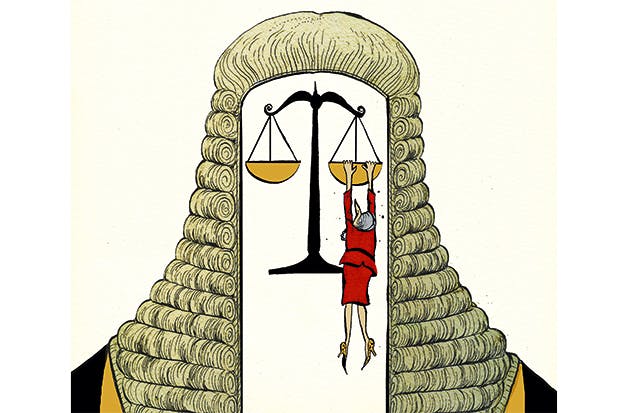The European Court of Justice is back in the headlines this morning. Its Advocate General, Manuel Campos Sanchez-Bordona, has declared that the UK might be able to cancel Brexit by revoking Article 50 unilaterally. So is that it settled? Not at all: nothing, with the ECJ, is ever that simple. In fact, the whole episode is a good chance to look at the ECJ and the way it works – and then ask if this is the kind of supreme court that Britain really wants to stay under.
Take what happened this morning. We learn via a three-page press release what Sanchez-Bordona thinks about Article 50. An hour after that the ECJ released a one-minute video clip (not in English). An hour after that we got the legal opinion. So let’s look at that.
- Paras 6 to 10: the Advocate General relies on International law. That’s extremely curious, as the EU treaties expressly exclude international law.
- Paragraph 11: he looks at the Act to ratify the Withdrawal Agreement – which is curious as that is not part of the question of notice under Article 50.
- Paras 32 to 57 deal with the question of whether the ECJ can even rule on this – the government’s point. Then – surprise, surprise! – the ECJ says the ECJ does have lots of powers.
And the conclusion:
‘When a Member State has notified the European Council of its intention to withdraw from the European Union, Article 50 of the Treaty on European Union allows the unilateral revocation of that notification, until such time as the withdrawal agreement is formally concluded, provided that the revocation has been decided upon in accordance with the Member State’s constitutional requirements, is formally notified to the European Council and does not involve an abusive practice.’
And paragraph 153 says:
‘In the second place, the antidote to the misuse of the right of withdrawal can be found in the general principle that abusive practices are prohibited, established by the Court, according to which EU law cannot be relied on for abusive or fraudulent ends and the application of EU legislation cannot be extended to cover abusive practices by economic operators. (93) That general principle could be applied in the context of Article 50 TEU, if a Member State engaged in an abusive practice of using successive notifications and revocations in order to improve the terms of its withdrawal from the European Union.’
Do you see what he did there? He just single-handedly took power from the member states (the Council) to block revocation and gave that power to… the ECJ!
Under Sanchez-Bordona’s proposal, revocation can’t be blocked by a member state – but it can be blocked by the ECJ ruling it is ‘abusive’. Of course, ‘abusive’ is not defined. The ECJ can do that later, in a way that would give it even more power. What it’s doing is shifting power internally: not back to the UK, as people who only read the press release are already claiming, but from states and their democratically-elected governments to the EU.
Which, of course, raises some vital questions: Just what is this ECJ (sometimes also known as CJEU) thing? And: does anyone want it to be this powerful? That’s why it’s important to remember that, in practice, none of us can name the ECJ’S 28 judges.
We’ve just created an all-powerful US-style Supreme Court and its judges are effectively anonymous. Is that a good idea? The US only allows there to be an all-powerful court because it has in place strong constitutional checks on it. That’s why, even in the UK, US Supreme Court judges are household names – the sanitising effect of sunlight.
This is important, because if they want to, the 28 judges can just ignore everything the Advocate General has said. Every last paragraph. They can just put in the bin. And they do just that whenever they want to. It’s also standard, as any competition lawyer will tell you, for the ECJ to take as long as a year to pass its judgement on what the Advocate General says. (Try having commercial certainty under that system.) Let’s hope they are a bit quicker this time.
So, the result? We still, even now, have no idea if the UK can revoke Article 50. We do know that a man who works for the EU thinks it will be a jolly good thing if the EU gets even more control over Member States.
And we might ask if even having an advocate general to give press releases that are effectively worthless is something we want to be a part of. And whether this is the kind of supreme court that should have any kind of jurisdiction over the UK.






Comments